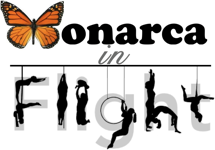If you only knew: Instructors share their secret thoughts
What do your instructors wish you knew? We asked, and they answered:
Cyndi: Two lessons from childhood that applies here as well: 1) play is important, and; 2) ask questions.
Time spent thoughtfully moving in your body builds confidence in its abilities. Whether that play happens on the ground or in the air, I think it is important to carve out that time. Take advantage of the open studio times and give yourself permission to play and to explore.
Why are we (I’m calling myself out here too) so reluctant to ask questions in front of others? Were we made fun of earlier in childhood for asking that “no stupid question” and we are still carrying that trauma? I think about this a lot. I promise you that your question is not just yours and you will be helping others by asking it. You are also helping me, the instructor, to think more deeply and articulate better. It’s a win-win!
Hannah: Your body is amazing. There is no one way for it to be, and wherever you are in your practice, that’s an awesome place with so much potential for creativity and self-expression. If there are skills you *want* to have because you think they’re cool, I am happy to help you work through what the progression looks like for you.
But! This is physical work, and as you gain skills and knowledge you’ll also need to develop more awareness of what your body NEEDS. It may need a good sports massage, a slight change in diet (think MORE protein, not less food!), or a rest week. (To quote Jen Crane, that’s seven days.)
Be as kind and thoughtful to your body as you would to any of your classmates! It’s a part of this community, too!
Hilary: I love you, O my students, but my memory for names and faces and injuries and exceptions is terrible. If I ask you to do something you know will cause you pain or injury (beyond, you know, normal circus discomfort), tell me you need a modification. Advocate for yourself. Remind me that you can’t do whatever it is I’m asking you to do, even if it’s the 43rd time you’ve had to remind me that your knee will not allow you to kneel on it, or your shoulder will not support a flamenco hold. Because I promise I’m not ignoring your needs! I have a lot of students, and a full-time day job, and my memory is not reliable, especially if I don’t see you every week.
I hate the word “should,” as in, “I should have a straight-arm inversion,” or “I should be able to hold a meathook.” Who is telling you that you “should” have these things? Tell me so I can beat that person up. There is no set list of skills one must have to be an aerialist. There’s value in working towards things that are hard for you, but physics is real, and so are anatomical differences and changes, and some things may be beyond the reach of some people. And that’s OK. Limitations do not make someone less of an aerialist. Please be kind to yourself.
Sarah: I acknowledge that I fundamentally lose the ability to count the moment I start leading a group warmup (Yes, I work with numbers in my day job and, yes, I can count perfectly fine when someone else is teaching…). Also – if you tell me you can’t do something (as in you have tried and failed and thus decided it’s Not A Thing; not as in a physical limitation), I’m probably going to reply “you can’t do it YET,” and ask to see where you are with it/talk about it/offer a modification or a progression.
I really want you to think of your aerial journey as your practice and think about what makes you feel good/strong/confident/bad ass. Yes, we all need to eat our vegetables but finding your sweet spot and making it yours helps you grow and will be a great foundation if you’re working towards performing!
Sophia: There’s a fine line between class participation and class disruption – please be respectful not only of us but also your fellow students! One of the things I love most is how close knit and friendly our community is. We want you to feel comfortable bringing your full, authentic selves to class. That said, we as instructors are still responsible for the safety AND learning of EVERY student in our class. Please be mindful of when, how, and how loudly you’re speaking during class. Other students might have different learning styles or needs than you do (I’ve heard that some people can actually hold a conversation while climbing… I am not one of those magical humans!), and it can be really disruptive and distracting for everyone when there’s a lot of cross-talk during class.
On a related note, please don’t ever hesitate to turn down the music, turn off the fans, or just move closer if you can’t hear. (Please don’t touch the air filters, those are there for our collective safety!)
We encourage you to set your own goals around your aerial practice and tell us what they are! As instructors in a group class setting, we’re trying to find a happy middle ground that serves all students as well as possible, but it can be hard with such a diverse student body. A student who hopes to attend circus school is going to have different wants and needs than someone who just likes to feel graceful in the air once or twice a month – and both of those (and everything in between!) are equally valid and wonderful! If you do have a specific goal, whether that’s endurance, strength, flexibility, a specific “bucket list skill,” or just plain old fun, please let us know and we’ll do our best to help you along that path!
